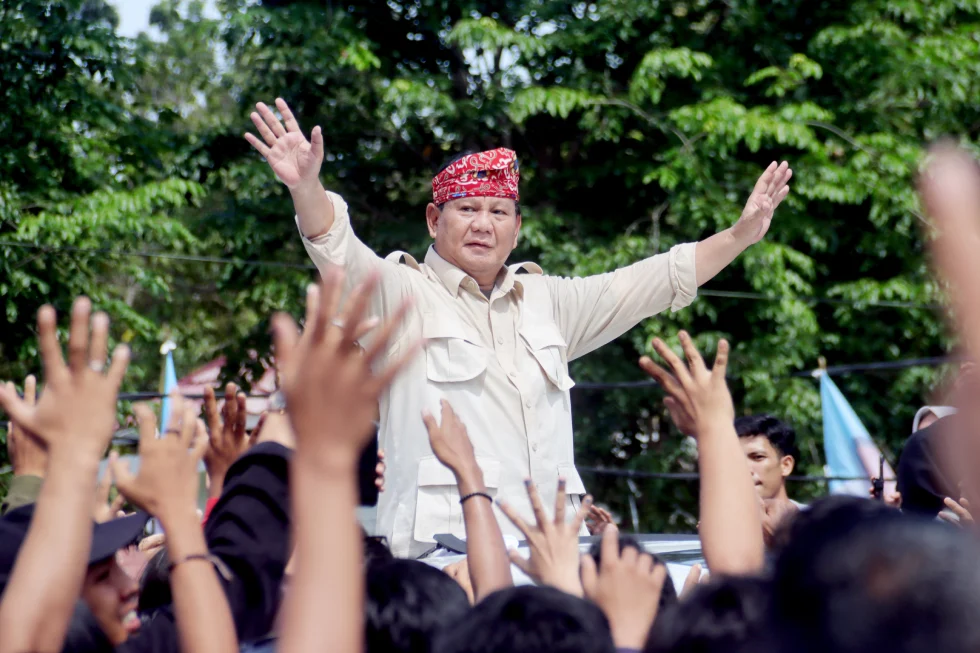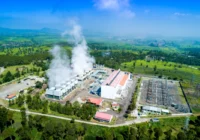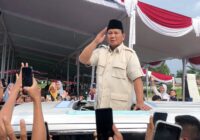Indonesia’s presidential election took place on February 14, 2024. Prabowo Subianto’s election victory came with a surprise — success in almost all of the provinces of Papua.
Prabowo’s sweeping victory is a shock as the former general is a deeply unpopular figure in the region. Papua has seen decades of strife over local independence ambitions and brutal military crackdowns, and distrust of military personnel is widespread. So why did Prabowo secure such a victory?
The good and the bad: Jokowi’s policy in the region of Papua
One plausible explanation for Prabowo’s electoral success in Papua might be the “Jokowi effect,” named for outgoing President Joko “Jokowi” Widodo. Jokowi’s eldest son, Gibran Rakabuming Raka, is Prabowo’s running mate. While Jokowi cannot officially support them, Prabowo and Gibran are considered “continuity” candidates. Supporters of Jokowi are partial to Prabowo as a result.
In addition, Jokowi is popular for his stance on Papua. Many residents see his progress in the region as encouraging. Jokowi visited Papua at least 14 times — more than any previous Indonesian president — demonstrating his commitment to the region. Over his two terms, he has sought to invest in the Papua region via infrastructure projects such as highways and airports. Papua was also offered the opportunity to host the Indonesia National Games in October 2021 in an effort to showcase the administration’s dedication to the development of the region and dispel public skepticism about safety.
But Jokowi’s approach to Papua was heavily criticized, especially for his intense military operations. The government pointed to the need to maintain public order, particularly when it came to the separatist groups in the region. At times, these military sweeps targeted civilians.
As recently as February 2024, a viral video showed a group of Indonesian soldiers subjecting a West Papuan man to torture in a barrel filled with water after a military raid in the districts of Omukia and Gome in the Central Papua province. The soldiers repeatedly struck, elbowed and kicked the man, cutting him with a knife as he sat in a pool of his own blood.
On the one hand, residents of Papua should not ignore the progress made in the region through infrastructure development, improved reputation and persistent visits, but on they other, neither should they ignore the lack of constructive dialogue with local Papuans concerning the continued persecutions of civilians by the Indonesian military.
Prabowo’s tainted past in Papua
The question is whether the Prabowo presidency will be any different for the region of Papua. The simple answer is no. There are feelings among analysts, journalists and human rights activists, as well as some local Papuans, that the situation in the region might become even more dire.
This concern is largely attributable to Prabowo’s past human rights record as well as his strongman persona, which is reminiscent of his years as an army general under previous president and dictator Suharto. West Papua was one of Prabowo’s former stomping grounds, and he was allegedly involved in civilian deaths during the Mapeduma hostage crisis.
The Mapenduma hostage crisis took place in 1996 when the Free Papua Movement (OPM) took 26 hostages in the fight for Papua’s independence from Indonesia. During the rescue effort, the Indonesian Army Special Forces allegedly used a helicopter commonly flown by the Red Cross, ultimately misleading the OPM. This led to several civilian casualties.
However, these allegations are not substantial. Besides, Prabowo might now be a changed man. However, his recent actions provide indications of what a Prabowo presidency will look like for Papua once he steps into the presidential palace in October 2024.
The stance that Prabowo took in regards to Freeport McMoran – a massive American mining company in West Papua – during his 2019 campaign should set off some warning bells. Prabowo referred to the company as a “big investor that we should not bother but help” despite the fact that the company has a reputation for violating the rights of the indigenous population and local Papuan laborers, as well as contributing to environmental degradation in the region.
In addition, there were reports that Prabowo had purportedly interfered to prevent a lawsuit filed by his own assistant against the company. This ought to worry local Papuans and environmental activists who oppose the mining operations. A Prabowo administration is unlikely to consider local sentiments. Those who vocalize their disagreement over the mining activities may be subjected to persecution and suppression.
A closer look at Prabowo’s intended policy for Papua
It doesn’t seem like Prabowo’s disregard for the wellbeing of Papuan locals has changed in the five years between 2019 and 2024. During the presidential debate in January 2024, his response to a question about his policy for Papua was very ambiguous and not convincing.
Prabowo did mention accelerating economic development in Papua, but there were notable signs that he would implement a much more stringent version of Jokowi’s developmentalist strategy. His plan to “strengthen the security apparatus” in Papua definitely means more bad news for the local Papuans. This was especially disconcerting because it came from a former military man. It seems that he has not ruled out the possibility of increased troop development in the region.
While assuring that “human rights remained high on his priority” in addressing the conflict in the region of Papua, Prabowo’s refusal to respond to a Human Rights Watch questionnaire on key issues confronting the Indonesian population at large showcased his low regard for human rights. Therefore, it is highly improbable that Prabowo will effectively safeguard human rights in Papua given both his previous and current record of inaction.
Despite the optimism that Jokowi will subdue the aggressive nature of Prabowo from the background, the reality is that Prabowo is a nationalist and military man at heart. He has made it clear that he will bolster military activity in Papua without regard for the locals. An enhanced militarisation policy in the region is something that should not be overlooked. There will be adverse consequences for Paupan locals under the Prabowo administration.
The views expressed in this article are the author’s own and do not necessarily reflect Fair Observer’s editorial policy.
Support Fair Observer
We rely on your support for our independence, diversity and quality.
For more than 10 years, Fair Observer has been free, fair and independent. No billionaire owns us, no advertisers control us. We are a reader-supported nonprofit. Unlike many other publications, we keep our content free for readers regardless of where they live or whether they can afford to pay. We have no paywalls and no ads.
In the post-truth era of fake news, echo chambers and filter bubbles, we publish a plurality of perspectives from around the world. Anyone can publish with us, but everyone goes through a rigorous editorial process. So, you get fact-checked, well-reasoned content instead of noise.
We publish 2,500+ voices from 90+ countries. We also conduct education and training programs
on subjects ranging from digital media and journalism to writing and critical thinking. This
doesn’t come cheap. Servers, editors, trainers and web developers cost
money.
Please consider supporting us on a regular basis as a recurring donor or a
sustaining member.
Will you support FO’s journalism?
We rely on your support for our independence, diversity and quality.










Comment